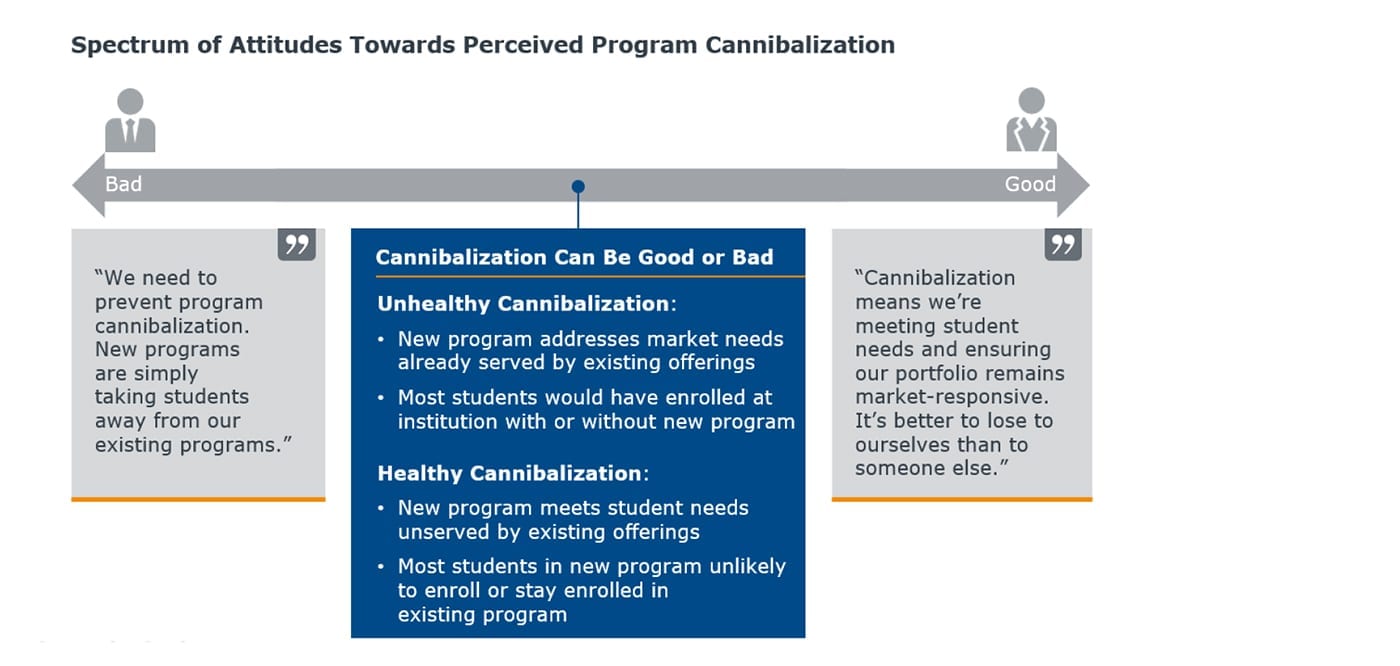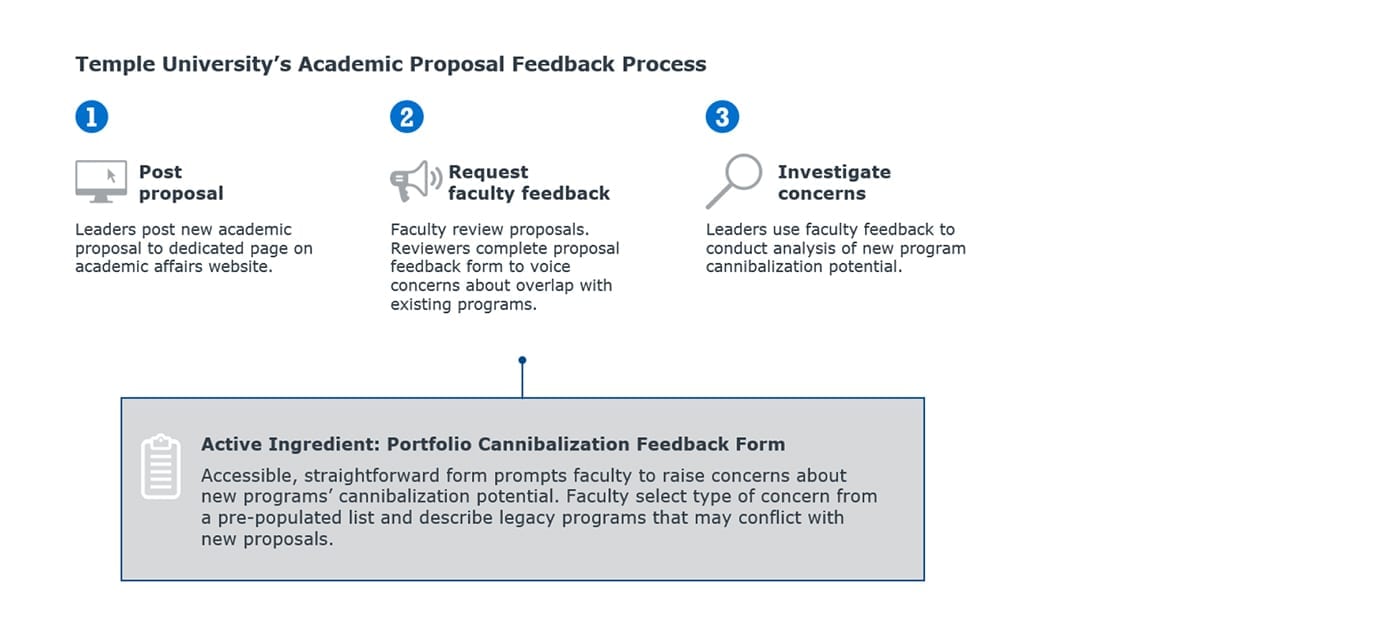To effectively steward institutional resources, finance and academic leaders must consider how new academic program proposals will impact enrollments in existing programs. Not only must leaders consider whether proposals may cannibalize existing program enrollments, they must also consider the net impact of cannibalization on institutional enrollments. Importantly, many campus stakeholders mistakenly assume that cannibalization is either always positive or always negative. In reality, there are two types of cannibalization—unhealthy and healthy.

Cannibalization is unhealthy when new programs’ enrollments are largely transfers from existing programs that sufficiently met their needs. These students would have enrolled at the institution with or without the new program. When institutions disregard the potential for unhealthy cannibalization in proposal evaluations, they risk launching programs targeting markets they already serve—confusing the student market, and splitting enrollments between programs.
On the other hand, cannibalization is healthy when program launches truly serve new markets and project “net new” enrollments. These launches may shift some students away from existing programs, but those programs were not fully meeting their needs.
Institutions that fail to differentiate between healthy and unhealthy cannibalization risk denying promising proposals for fear of unhealthy cannibalization—and missing out on true growth opportunities.
Use academic feedback to improve cannibalization analyses
Central leaders do not always possess the disciplinary expertise to accurately anticipate potential cannibalization. Faculty, as subject matter experts, possess the nuanced understanding of the academic portfolio necessary to recognize proposals that closely overlap with legacy programs. Constructively requesting faculty feedback on new program proposals can direct leaders’ attention to programs most at risk for cannibalization.
Temple University’s Academic Proposal Feedback Process allows leaders to seamlessly obtain valuable information from faculty across campus. Senior academic leaders post all new program proposals to an internal website. They then ask all faculty to review proposals, flag those that might cannibalize existing programs, and explain why. Leaders use this information to evaluate proposals, and deny those that do not serve distinct new market needs. Since creating this process, leaders have denied seven proposals with unhealthy cannibalization potential. In other cases, they determined that flagged proposals had healthy cannibalization potential and approved them for launch. All have seen strong enrollments.
